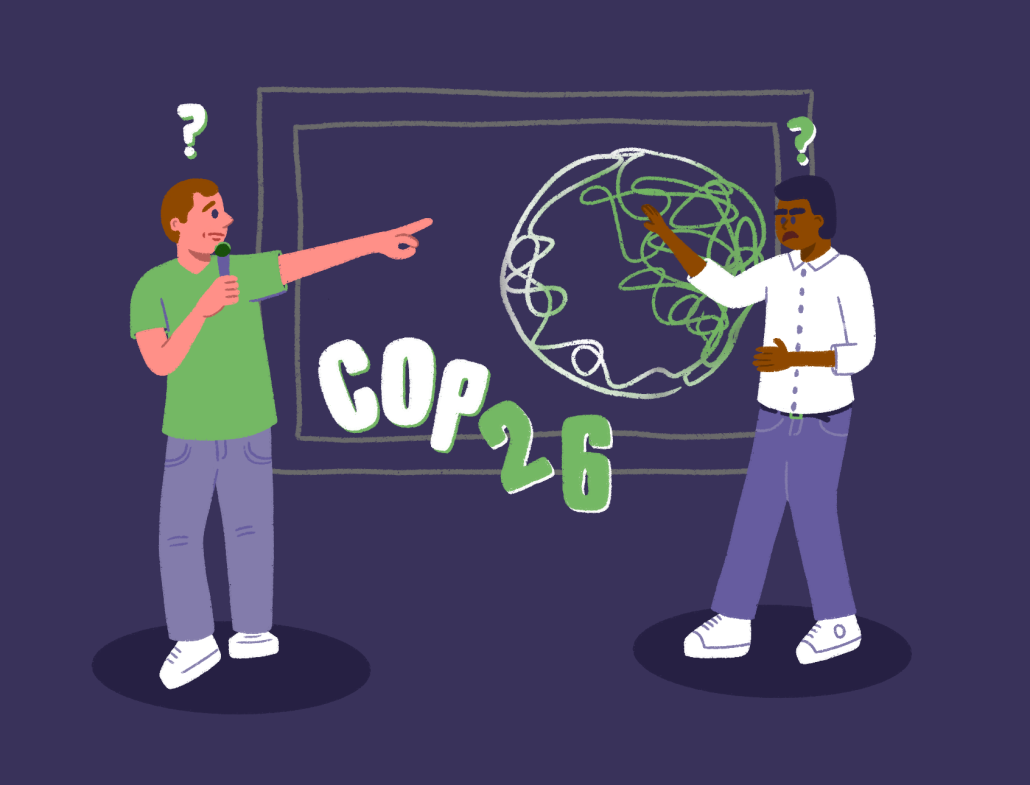Triple Bottom Line: COP26 — the call to action went to voicemail
Hello Friday readers, welcome to my column! I got an extension on this week’s article to more comprehensively assess the success of this year’s global climate conference — some may call it procrastination — they aren’t wrong — but I call it good journalism! At the time of this article’s publication, the 26th annual United Nations Conference of the Parties, held in Glasgow, Scotland, will have just closed.
The UN has hosted these annual global climate change summits for more than two decades. Negotiators, government representatives, businesses and citizens from countries around the world meet in a designated host city for two weeks to focus on implementing the UN Framework Convention on Climate Change.
Arguably, climate conferences are the ultimate high-stakes group project. But, if all the group members don’t get their act together, the damage will be a lot more irreparable than a bad grade. Instead of missed deadlines, rescheduled meetings and some light ghosting, the consequences include increased global temperatures, a more rapidly changing climate, increased wealth disparities, rampant food insecurity and more intense weather patterns, just to name a few.
Because of the pandemic, COP26 was the first international climate conference held since 2019, so the pressure was on. Regarded as the world’s “last best hope” for avoiding the worst of climate change, the conference invited delegates from 195 countries to Scotland with the hopes of creating methodologies to meet the 2015 Paris Agreement goal: limit the global average temperature increase over the preindustrial era to 1.5 degrees Celsius by 2050.
The United Kingdom claimed the event was destined to be “the most inclusive COP ever,” yet the reality was far from the truth. Perhaps the best way to sum up the achievements over those two weeks was a recent Tweet from climate activist Greta Thunberg: “#COP26 has been named the [most] excluding COP ever. This is no longer a climate conference. This is a Global North greenwash festival. A two week celebration of business as usual…”
Thunberg is not alone in accusing Glasgow of being exclusionary. Thanks to capitalist priorities and pandemic limitations, conference regulations were more stringent than ever. Between travel restrictions and extraordinarily high lodging costs, developing nations and nonprofits found it unusually difficult and expensive to attend the conference. Prices were hiked even higher because of labor and supply shortages caused by the pandemic and Brexit.
Developing countries’ lack of participation created an even greater power imbalance and failed to account for their interests in negotiations. Even as major world leaders from high emitters such as Russia and China failed to attend, the absence of Global South representation resulted in a disproportionate and ineffective power dynamic.
Additionally, pandemic protocols effectively gatekept one of the conference’s most important aspects — civic engagement. While the civil society’s participation is a keystone aspect of climate conferences, social distancing and limited seating at open forums only heightened feelings of exclusion. Aspiring attendees were regularly stuck in hours-long lines, bogged down by travel red lists and encountered wheelchair-accessibility issues. While protests and demonstrations continued in the city’s streets, activists felt that their social movements were disconnected from the conference itself.
In general, capitalism fuels disparities at climate conferences, and COP26 was no exception. The conference’s location, the accessibility of translators at forums, the conference’s general content and most organizational decisions benefit developed countries in the Global North over the developing nations of the Global South.
Because of difficulties in obtaining vaccines and visas and receiving a literal seat at the table for negotiations, the voices of those at the forefront of climate change’s impact failed to be heard. And, hybrid events were of little to no benefit to countries and territories with minimal internet access.
COP26 was a predictable disappointment that shows us just how counterintuitive global climate conferences are in attempting to produce tangible international progress. The bread and circuses of global climate conferences yield little substance; instead, they are an energy- and resource-intensive, commercialized photo opportunity for world leaders while activists and nonprofits congregate outside pleading for progress.
While many climate change demonstrations have showed the collective power of social movements, they also served as frustrating reminders that progress is limited without the legitimate cooperation of government leaders.
Despite our yearly optimism, Glasgow reminded us that transparency, accessibility and political progress fall to the backburner at climate conferences — global leaders preach aggressive climate action and make bold declarations, only to follow them up with watered-down resolutions and apathetic, nonbinding legislation. The gap between promise and policy continues to grow, as does the divide and distrust between the Global North and South.
I’m no stranger to a lackluster group project — I’ve had my fair share of late nights picking up the slack for group mates and scrambling to assemble a presentation before the deadline. However, that’s not an option when it comes to the climate crisis. Stopping or even slowing climate change’s effects requires legitimate commitment from every nation.
A group is only as strong as its weakest link, and if that link emits record-high amounts of greenhouse gases, the success of our efforts will be incredibly limited.
Regarding the UN, coordinating representatives from around the world with different priorities, languages and cultures is incredibly difficult. Although the United States and China made progress by announcing their cooperation in reducing greenhouse gas emissions, they have not clarified the agreement’s specifics yet. Despite the limited international progress that came out of the conference, the real outcomes have already become clear.
The sparse guest list, ableism, lack of equitable arrangements for developing nations and closed doors to civil society at COP26 showed a lack of regard for adequate representation and set our course further away from the international cooperation we desperately need for effective climate intervention.
Montana Denton is a senior writing about environmental issues, sustainability and society. Her column, “Triple Bottom Line,” usually runs every other Wednesday.


